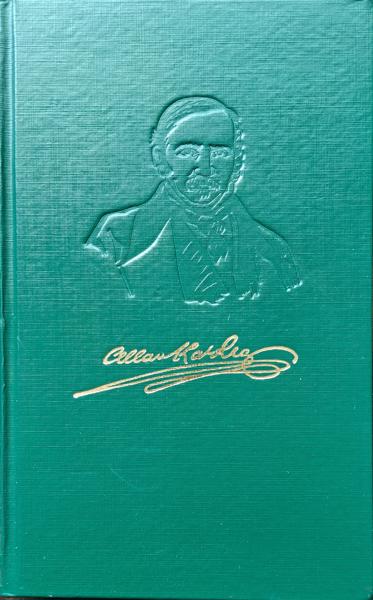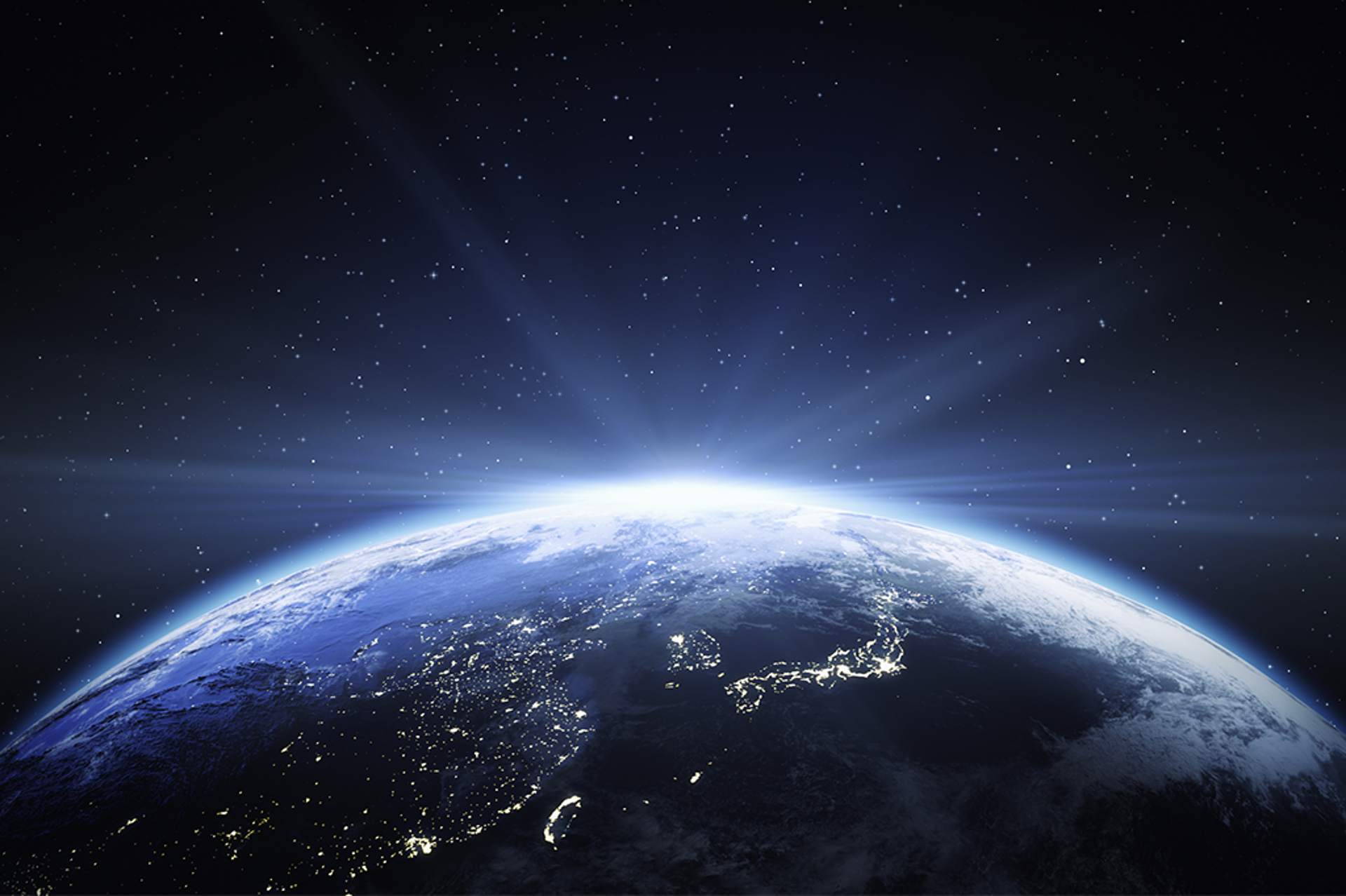Genesis, Chapter II - God - 3 - View of God
THE CODIFICATION
GENESIS: The Miracles and the Predictions According to Spiritism
By Allan Kardec Author of "The Spirits' Book," "The Mediums' Book," and "Heaven and Hell."
Translated By The Spirit-Guides of W. J. Colville [Colby & Rich, Publishers - 1883 - Boston - USA]
The spiritual doctrine is the result of the collective and concordant teachings of spirits. Science is called in to make the statements in Genesis agree with the laws of nature. God proves his greatness and power by the immutability of his laws, and not by their suspension. For God the past and the future are the present.
CHAPTER II
GOD – EXISTENCE OF GOD – THE DIVINE NATURE - PROVIDENCE -VIEW OF GOD
VIEW OF GOD
31. Since God is everywhere, why do we not see him? Upon leaving the earth, shall we see him? Such questions are daily proposed.
The first is not difficult to solve. Our material organs have limited perceptions, which render them powerless to see certain things, sometimes even material objects. Thus certain fluids escape our view, as also that of our analytical instruments. However, we do not doubt their existence. We see the effects of the pestilence; but we do not see the fluid which transports it. We see bodies move under the influence of the force of gravitation; but we do not see this force.
32. The spiritual essence of things cannot be perceived by material organs; it is only by the spiritual vision that we can see spirits, and the substances of the immaterial word. Our soul alone can then have perception of God. Does it see him immediately after death? Communications from beyond the tomb can alone inform us. By them we learn that the privilege of seeing him is granted only to the purest souls, and thus very few possess the necessary degree of ethereality upon leaving their terrestrial trial envelope. Some common comparisons will make this the more easily comprehended.
33. He who is in the depth of a valley surrounded by a thick fog does not see the sun; but at a higher point, by aid of the increased light, he judges that the sun is shining. If he climbs the mountain, in proportion as he rises the fog becomes thinner, the light more and more brilliant; but he does not as yet see the sun. When he commences to see it, it is as yet veiled; for the least vapor suffices to conceal its splendor. It is only after rising above the lowering mist, only in and atmosphere of perfect purity, that he sees it in all its brightness.
It is the same with him whose head is enveloped in many veils. At first he sees nothing at all. With every veil which is withdrawn, the light becomes more and more clear; but it is only when the last veil is taken away that he perceives clearly all things.
It is still the same with a liquor charged with foreign substances. It becomes turbid at first. At every distillation its transparency is augmented, until, becoming completely purified, it acquires a perfect limpidity, and presents no obstacle to the sight.
Thus it is with the soul. The perispiritual covering, although invisible and impalpable to us, who are still too gross for certain perceptions, is, in truth, a veritable substance. This covering becomes spiritualized itself in proportion as the soul becomes elevated by morality. The imperfections of the soul are like veils which obscure its light. Every imperfection when removed leaves one veil less; but it is only after becoming completely purified that it enjoys the full plenitude of its faculties.
34. God, being pre-eminently the divine essence, can be perceive in all his splendor only by spirits who have arrived at the highest degree of ethereality. If imperfect spirits do not see him, it is not that they are farther away from him than others. They and all natural things are submerged in the divine fluid, as we are in the light, only their imperfections are veils which hide him from their sight. When the fog shall have disappeared, they will see him resplendently shine. To attain this vision, there will be no necessity for climbing, nor of seeking him in the depths of infinitude. The spiritual sight, being disembarrassed of the moral taints which obscured it, they will see him in every place; for he is everywhere to be found. He must be as truly upon the earth as elsewhere, if he is everywhere.
35. It takes time for the spirit to purify itself; and the different incarnations are the alembics in the depths of which is left each time some impurity. In quitting his mortal envelope man is not instantaneously despoiled of his imperfections. That is the reason why some see no more of God after death than while living on earth; but, in proportion as spirits become purified, they have a more distinct intuition. If they do not see God, they comprehend him better; the light is less vague. Thus, when spirits say that God forbids them to respond to this question, it is not that God appears to them, or speaks to them, in order to direct them to do, or prohibit them from doing, such and such things. No; but they feel him; they receive the emanation of his thought, as we feel in respect to spirits who envelop us in their fluid, although we do not see them.
36. No man can see God with fleshly eyes. If this favor were accorded any one, it would only be in that trance state when the soul is as much redeemed from the trammels of matter as is possible during incarnation. Such a privilege would only be accorded to advanced souls incarnated for a mission here, and not in expiation for sin. But, as spirits of the most elevated order shine with a dazzling splendor, it is possible that spirits less elevated, embodied or disembodied, struck with the splendor which surrounds them, have believed that they have seen God himself, as one sees sometimes a minister taken for his sovereign.
37. Under what appearance does God present himself to those who are rendered worthy of such a favor? Is it under any form, - as a human figure, or as a focus of beaming light? This is something that human language is powerless to describe, because there exists no point of comparison which can give an idea of it. We are like blind men whom men seek in vain to instruct concerning the appearance of the light of the sun. Our vocabulary of knowledge is limited to our needs, and to the circle of our ideas. Just as that of the savage could not possibly depict the marvels of civilization, so that of people of the highest culture is too poor to describe the splendors of the heavens, our intelligence too limited to comprehend them, while our too feeble sight would be dazzled by their brightness could we see them as they are
_______________________________________________________
Source: Published Text in The Spiritist Messenger, n. 105, April 15th, 2009








